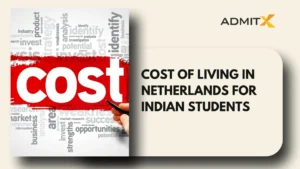- In German visa interviews, precision in costs matters more than showing big money. Exact figures matching your documents build trust.
- Using German specific academic terms like “research seminars” or “independent study” proves you are prepared for their system.
- Visa approval depends heavily on showing strong India ties with clear career plans and return intent.
- Most Common German Embassy Student Visa Interview Questions & Answers
-
Sample Answers for the Germany Visa Interview
- 1) Why do you want to study in Germany?
- 2) Why not study this course in India?
- 3) What will you study, and why this major?
- 4) How does this program relate to your previous studies or work?
- 5) Which university will you attend, and why?
- 6) How many universities did you apply to, and how many admits?
- 7) What do you know about your university’s location?
- 8) Which tests have you taken, and what are your scores?
- 9) What is your GPA/overall academic performance?
- 10) How will you adjust to the German academic style?
- 11) Do you speak German?
- 12) What is the total annual cost, and how will you fund it?
- 13) Do you have a scholarship/assistantship—can you show proof?
- 14) Have you traveled to Germany/Europe before, or do you have relatives there?
- 15) What are your plans after graduation?
- 16) Do you plan to work in Germany after graduation?
- 17) Why did you change your major/career direction? (If applicable)
- 18) How will you balance study with part‑time work?
- Top 5 Best Practices to Ace Your Germany Student Visa Interview
- Key Takeaways by AdmitX
- Frequently Asked Questions (FAQs)
Sitting across from a German visa officer can feel like a high-stakes conversation that will decide your study-abroad dreams. Every answer, every document, and every detail of your plan is under scrutiny. But with the right preparation, this daunting process can become predictable.
If you’re applying for the German student visa (Visum zu Studienzwecken), the interview is your chance to align your spoken answers confidently with your files. Most students struggle because they don’t know what kind of student visa interview questions and answers the German Embassy expects, but with preparation, you can walk in confidently.
German visa officers mainly focus on three things:
- Clear Academic Purpose: Present a genuine reason for choosing your course and university in Germany.
- Financial Readiness: Show that you have reliable and sufficient funds to cover your tuition and living costs.
- Future Plans: Explain your realistic plan for life after graduation, which is directed towards returning home and pursuing further opportunities.
In this guide, we break down the most common German student visa interview questions for international students in 2026, explain the key points to emphasize in your answers, and share practical tips to improve your chances of visa approval.
Most Common German Embassy Student Visa Interview Questions & Answers
During the interview, German visa officers verify three things across most questions: program fit and academic readiness, proof of funds that match cost of studying in Germany, and clear, compliant post-study intent. Understanding the common types of questions and the key points to focus will help you respond confidently and effectively.
The following section highlights the most important questions and offers guidance on how to present clear, persuasive, and well-supported answers.
1) Study Plans and Academic Background
Why do you want to study in Germany?
- Highlight Germany’s research‑driven, practice‑oriented programs, strong industry linkages, and hands-on learning.
- Mention the value of low/no tuition at many public universities and availability of English‑taught programs, tied directly to your field.
- Reference specific labs, projects, or co‑ops that will build skills for your long‑term career goals.
Why not study this course in India?
- Emphasize advanced curricula, state‑of‑the‑art labs, and applied learning opportunities in Germany.
- Cite unique modules, specialized facilities, or industry partnerships that are not readily available to you in India.
- Frame Germany as adding complementary depth and perspective—without disparaging Indian education.
What will you study and why this major?
- Connect your academic/professional interests to core modules and applied projects.
- Include a brief anecdote (project, internship, or challenge) that sparked your interest.
- Explain how this major closes current skill gaps and supports a clear, India‑focused career path.
How does this program relate to your previous studies or work?
- Show logical progression from prior academics/work to this program.
- Highlight transferable skills (research, problem‑solving, technical tools, teamwork).
- If changing fields, explain motivation and preparation (certifications, projects, internships).
2) University Selection and Fit
Which university will you attend and why?
- Point to academic strengths: faculty, research groups, labs, specializations, or co‑ops.
- Mention relevant accreditations, industry partnerships, or alumni outcomes.
- Add support services and location advantages that fit your goals.
How many universities did you apply to and how many admits?
- Be transparent: outline a research‑driven shortlist (curriculum, faculty, career services).
- Explain why the chosen admit best aligns with your academic and professional objectives.
What do you know about your university’s location?
- Note industry presence related to your field, plus internship and networking opportunities.
- Include practical readiness: accommodation, transport, climate, and student lifestyle.
3) Academic Capability and Readiness
Which tests have you taken, and what are your scores?
- State scores confidently; mention preparation (self‑study, coaching, practice tests).
- Balance any shortfalls with GPA, projects, publications, or work achievements.
- Link your profile to success in Germany’s applied and research‑oriented environment.
What is your GPA/overall academic performance?
- Share GPA with highlights: projects, awards, research, or leadership.
- Note improvement over time and readiness for independent, rigorous study.
How will you adjust to the German academic style?
- Germany emphasizes research, labs, seminars, and independent study.
- Give examples where you thrived in similar modes (capstones, hackathons, collaborations).
- Mention campus resources you will use (writing centers, labs, peer groups).
Do you speak German?
- State your level (e.g., A2/B1) and ongoing learning plan.
- For English‑taught programs, basic German still helps with daily life, part‑time work, and internships.
- If you’re learning now, mention your class schedule and target level by semester 1.
4) Financial Capability and Proof
What is the total annual cost and how will you fund it?
- Present exact figures: tuition (if any), semester contribution, health insurance, living expenses, and blocked account.
- For 2025, most students prove finances via a blocked account of €11,904/year (€992/month); full scholarships or a formal sponsor commitment (Verpflichtungserklärung) may be accepted as applicable.
- Provide a clear funding split: blocked account + scholarship + sponsor income/savings, with documents.
*It’s important to remember that many German student visa rejection reasons are directly tied to weak financial proof or inconsistent bank statements. Always back up your answers with clear, official documentation.
Who is sponsoring you and what is their occupation/income?
- State sponsor’s name, relationship, role, and annual income clearly.
- Emphasize stability and capacity to cover expenses.
- Provide ITRs, salary slips, bank statements, and a sponsorship affidavit.
Do you have a scholarship/assistantship—can you show proof?
- Name the award, amount, duration, and disbursement schedule.
- Show official letters/emails and clarify if it replaces part or all of the blocked account.
Can you explain recent large deposits in your account?
- Provide exact sources (FD maturity, education loan disbursement, asset sale).
- Match explanations to bank statements and include supporting documents.
5) Post‑Graduation Plans and Ties to India
Integrity and ConsistencyWhat are your plans after graduation?
- Present a clear India‑focused career path (roles, target companies/sectors).
- Explain how German training and applied projects give you a measurable edge.
- Show awareness of Indian market trends that align with your skills.
Do you plan to work in Germany after graduation?
- Graduates of German universities may apply for an 18‑month residence permit to seek employment after completing their degree; if mentioned, frame this as temporary, career‑relevant experience before returning to India.
- Reinforce long‑term commitments and opportunities in India.
How will this German degree benefit your career in India?
- Identify specific technical, research, or leadership skills in demand.
- Link international best practices and tools to higher‑responsibility roles at home.
- Mention potential for cross‑border collaboration or innovation initiatives.
6) Integrity and Consistency
Have you traveled to Germany/Europe before or have relatives there?
- Answer honestly with purpose and duration; if relatives are present, clarify boundaries and independence.
- Emphasize compliance with visa rules.
Why did you change your major/career?
- Provide a clear, evidence‑based rationale.
- Show preparation (courses, certifications, projects, internships).
- Connect the shift to a coherent, long‑term plan in India.
Where will you live in Germany?
- State your accommodation plan: university dorm, student apartment, or private rental.
- Carry confirmations/leases and basic details (address, rent, deposit, commute time).
What do you know about Germany?
- Demonstrate basic awareness of culture, economy, and academic style.
- Mention student life, public transport, and industry hubs relevant to your field.
- Show cultural adaptability and readiness to integrate respectfully.
Sample Answers for the Germany Visa Interview
Let’s look at the most common questions asked in a German student visa interview with structured, realistic answers. These are designed to reflect how successful students actually respond during interviews, with clear reasoning, context, and professional tone.
1) Why do you want to study in Germany?
I have an admit to [University Name] for [Program Name]. I chose this program in Germany because the teaching style here combines research seminars, practical lab work, and a supervised thesis, which is exactly how I want to build depth in [your field]. My study plan is built around [Module 1] and [Module 2], and I will be working with the [Lab/Chair] on [topic], so my coursework and project align closely.
The academic culture in Germany expects independent preparation, regular discussion with faculty, and clear documentation of methods and results. That approach suits me, and it gives me the right foundation to complete the degree properly and use these skills in India after graduation.
2) Why not study this course in India?
I compared my Indian admits with this program and found a clear difference in depth and exposure. [University] sequences modules from experimentation to production—[Module A → Module B → Capstone]—and runs applied projects inside the [Research Group/Lab] with access to [tool/dataset/facility], which my Indian offers didn’t provide at the same level.
My plan is to return to India and work in data product roles; training in an environment that prioritizes reproducibility, MLOps pipelines, and industry collaboration will help me deliver production‑grade solutions faster once I’m back.
3) What will you study, and why this major?
I’ll pursue an MSc in Data Science with electives in MLOps and Responsible AI. This builds on my CS degree and internship experience where I led a forecasting project that reduced stockouts by 11% at [Company].
I noticed gaps in versioning, drift monitoring, and audit documentation. The modules at [University]—[X], [Y], [Z]—fill those gaps so I can manage the full lifecycle from model design to stable production, which is exactly the expertise needed in India’s BFSI and telecom sectors.
4) How does this program relate to your previous studies or work?
My foundations come from a CS degree and hands-on projects. In my final year, I built a time‑series model using Prophet and SARIMA to predict service demand; during my internship, I deployed a churn model and learned about model decay and governance.
This program extends that experience through coursework on data versioning, CI/CD for ML, and model risk documentation. It’s a direct step from building models to making them reliable at scale, which is the career direction I’m targeting in India.
5) Which university will you attend, and why?
I’ve chosen [University] because its [Lab/Chair] publishes actively in applied ML and partners with [Industry/Institute] for capstone projects. The electives—[Elective 1], [Elective 2], [Elective 3]—align with my plan to specialize in scalable ML systems. I compared this choice with [Other University], which is stronger in theoretical research, but [University] offers better industry linkage and project‑based training, which is more relevant for my India‑focused career path.
6) How many universities did you apply to, and how many admits?
I applied to five programs—[List]. I received admits from [A], [B], and [C]. I built a comparison matrix based on criteria like curriculum depth, lab activity, capstone structure, and internship outcomes. [University] scored highest for hands-on training and partner network, so I accepted that offer.
7) What do you know about your university’s location?
[City] is an active hub for [industry], with companies like [X, Y, Z] hiring for roles in my field. I have already joined [Meetup/Student Community], and I’ve mapped events I can attend for networking. My accommodation is booked at [Residence], [full address], with rent €[rent]/month (₹[rent INR]) and a €[deposit] (₹[deposit INR]) deposit paid. The commute is [minutes] by [tram/bus], which I’ve planned into my class schedule and part‑time hours.
8) Which tests have you taken, and what are your scores?
My scores are [IELTS/TOEFL: score] and [GRE: score, e.g., 320 with Q165, V155]. I prepared with timed mocks and section targets. My strengths are quantitative reasoning and coding, and I strengthened academic writing through a seminar paper on [topic]. Combined with an 8.[x]/10 CGPA and applied projects, I’m prepared for lab‑ and seminar‑based coursework.
9) What is your GPA/overall academic performance?
My CGPA is 8.[x]/10. The last four semesters are my strongest after I moved to a weekly milestone schedule for major projects. I led a predictive analytics project for the college incubation cell that is still used to track leads, and I completed a research seminar with a small demo paper. These experiences match the independent, project‑oriented learning style in Germany.
10) How will you adjust to the German academic style?
I plan my week around three blocks: reading and notes, implementation and experiments, and write‑ups with results. I use office hours early for feedback and join peer study groups to stay on track. This mirrors how German modules run, with independent work and structured reviews. It’s the same approach I used in my capstone and internship to hit deadlines without sacrificing quality.
11) Do you speak German?
The program is English‑taught. I’ve completed A2 at [Institute] and I’m enrolled for B1 with two evening classes per week, targeting B1 by the end of semester one. I already use German for everyday communication—housing messages, shopping, and directions—and I’m building workplace vocabulary to support part‑time roles and internships.
12) What is the total annual cost, and how will you fund it?
My first‑year cost is €[X] (₹[X INR]). This includes a semester contribution of €[A] (₹[A INR]), public health insurance of €[B]/month (₹[B INR]), and living expenses covered through the blocked account at €11,904/year (₹10,70,000), withdrawn at €992/month (₹89,000).
Funding is a mix of the blocked account (confirmation printed), a €[Y] (₹[Y INR]) merit scholarship from [Provider], and ₹[Z] in family savings. I’ve brought ITRs for two years, 6‑month bank statements, and salary slips to support the sponsor component. This setup covers fees and living without financial stress.
13) Do you have a scholarship/assistantship—can you show proof?
Yes. I have a merit‑based scholarship of €[amount] (₹[amount INR]) for [duration], disbursed [monthly/per semester]. The official award letter and disbursement schedule are printed. I’ve shown how this integrates with the blocked account to fully cover living costs, and I will submit disbursement receipts along with my enrollment confirmation each semester as required locally.
14) Have you traveled to Germany/Europe before, or do you have relatives there?
No prior travel and no close relatives in Germany. I’ve prepared for an independent stay with housing booked, health insurance arranged, and finances documented. My focus is academics and industry projects, and I’ll keep all registrations and residence conditions on time.
15) What are your plans after graduation?
I plan to return to India and work in analytics/AI roles where scalable ML and model governance are priorities. Teams at [TCS/Infosys/Fractal/PhonePe/Swiggy/Axis/ICICI] are building these capabilities now. The coursework on [X and Y] positions me to lead one complete data product within three years—taking a model from design to stable production and measurable business impact.
16) Do you plan to work in Germany after graduation?
If a role directly supports my specialization, I may apply for the post‑study residence of up to 18 months to gain targeted experience. My long‑term plan is India‑centric, where I can apply the systems training from [University] in high‑impact projects and step into leadership tracks faster.
17) Why did you change your major/career direction? (If applicable)
I moved from general software development to data because my strongest outcomes consistently came from analytical work. During my internship, a forecasting proof‑of‑concept reduced stockouts by 11% and was adopted by the operations team.
To prepare for a deeper shift, I completed [Certification], built a small MLOps pipeline with [Tool], and contributed to [project]. This program formalizes that transition into a structured, industry‑aligned path.
18) How will you balance study with part‑time work?
My schedule prioritizes coursework and labs first. I’ve allocated 30–35 hours weekly for classes and projects, with up to 8–10 hours for part‑time work within legal limits—ideally roles that align with my skill set, like campus IT or research assistant work. I use a weekly milestone tracker so deadlines are met without last‑minute rush.
Top 5 Best Practices to Ace Your Germany Student Visa Interview
After understanding the major German student visa questions and model answers, it is important to adopt strategic practices that make your responses more effective. These best practices focus on preparation, presentation, and confidence to help you leave a strong impression on the visa officer.
- Showcase composed credibility through steady tone, direct eye contact, and a well‑organized file, keeping responses academic, precise, and centered on program details, funding, housing, and an India‑anchored career path.
- Manage pace with a disciplined 10‑10‑10 delivery: ten seconds for the headline, ten seconds for one concrete instance, and ten seconds to point to the corroborating document, then conclude.
- Begin each response with a precise, declarative headline and the exact figures, then reference a specific proof in your file and pause to allow the next question.
- Prepare one-line definitions for German terms you might hear: Sperrkonto (blocked account), Verpflichtungserklärung (sponsor commitment), Aufenthaltstitel (residence permit), Semesterbeitrag (semester contribution).
- Avoid market or immigration narratives: skip salary talk, PR, or long-term settlement; keep post-study remarks to the 18-month graduate residence and an India-first plan.
Key Takeaways by AdmitX
- The interview for the German student visa (Visum zu Studienzwecken) tests three things across almost every question: a clear academic purpose, credible funding that matches real costs, and a realistic, compliant plan after graduation centered on India.
- Answers should be structured for clarity and control: open with the headline and exact figures, add one concrete instance tied to your file, point to the document location in your folder, and then pause.
- Financial readiness must be stated with precise numbers and proofs: year‑1 cost breakdown, blocked account €11,904/year (₹10,70,000) at €992/month (₹89,000), scholarship amount and schedule, and sponsor income with ITRs, salary slips, and 6‑month statements.
- A one‑page file map improves delivery and confidence: arrange documents in tabs (Admission, APS Certificate, Funding, Insurance, Housing, Academics) and memorize the tab names and page numbers to retrieve any proof within seconds.
- Academic fit lands best when it is specific: name two modules and one lab/chair from the admitted program, state how they align with your learning plan, and avoid job‑market or ROI narratives.
At AdmitX, we specialize in transforming study abroad aspirations of Indian students into success stories. Our expert counselors have guided thousands of Indian students to top universities worldwide with comprehensive support from course selection to visa approval.
We provide personalized counseling, university selection guidance, SOP review services, study abroad document templates, free IELTS bootcamp course, scholarship assistance, and visa support services specifically designed for Indian students.
Book your free study abroad counseling session today and take the first step toward your international education journey!
Frequently Asked Questions (FAQs)
What is the official name of the German student visa for study abroad?
The German student visa is officially called Visum zu Studienzwecken and is required for international students planning to study in Germany for their higher education.
What are the main evaluation criteria in a German student visa interview?
Visa officers primarily assess clear academic purpose, financial readiness including proof of funds like the blocked account of €11,904 (approximately ₹10,70,000), and future career plans after graduation with India-focused goals.
How can I explain my reasons for choosing to study in Germany during the visa interview?
Focus on Germany’s research-oriented education, practice-based learning including labs and projects, availability of low or no tuition public universities, and English-taught programs relevant to your field. Cite specific laboratories or co-op opportunities linked to your long-term career aspirations.
How do I justify not studying my course in India?
Highlight Germany’s advanced curriculum, specialized research labs, and industry collaborations that provide unique practical experience unavailable locally. Present Germany as complementing your Indian education without any negative remarks on Indian institutions.
What financial documents do I need to prove financial readiness for my German student visa?
You must provide evidence like a blocked account with €11,904 (₹10,70,000), scholarship award letters if any, sponsor income proofs including ITRs, salary slips, and bank statements to demonstrate reliable fund availability for tuition and living expenses.
What should my post-graduation plans focus on during the German student visa interview?
Clearly outline a career plan centered in India, specifying roles and companies where your German education provides an advantage. If planning to work in Germany temporarily, explain this as a short-term, relevant experience under the 18-month post-study residence permit.
How should I describe my academic preparedness for studying in Germany?
Connect your previous academic or work experience to the German program, emphasizing transferable skills such as research, problem-solving, and technical expertise, and mention your level of German proficiency along with your ongoing language studies.
What accommodation details should I have ready for the German student visa interview?
Be prepared to share your housing type, address, rent in both euros and Indian rupees, deposit paid, and daily commute details, supported by lease agreements or official confirmation letters.
Can a scholarship or sponsor replace the blocked account requirement for the German student visa?
Yes, full scholarships or formal sponsor commitments known as Verpflichtungserklärung may substitute for the blocked account, but partial funding still requires a blocked account for the remaining amount with supporting documentation.
How do I discuss German language proficiency during the visa interview?
State your current German level such as A2 or B1, describe your ongoing language classes, and set a realistic goal for the end of your first semester, highlighting your practical use of German in daily life or part-time work.
















